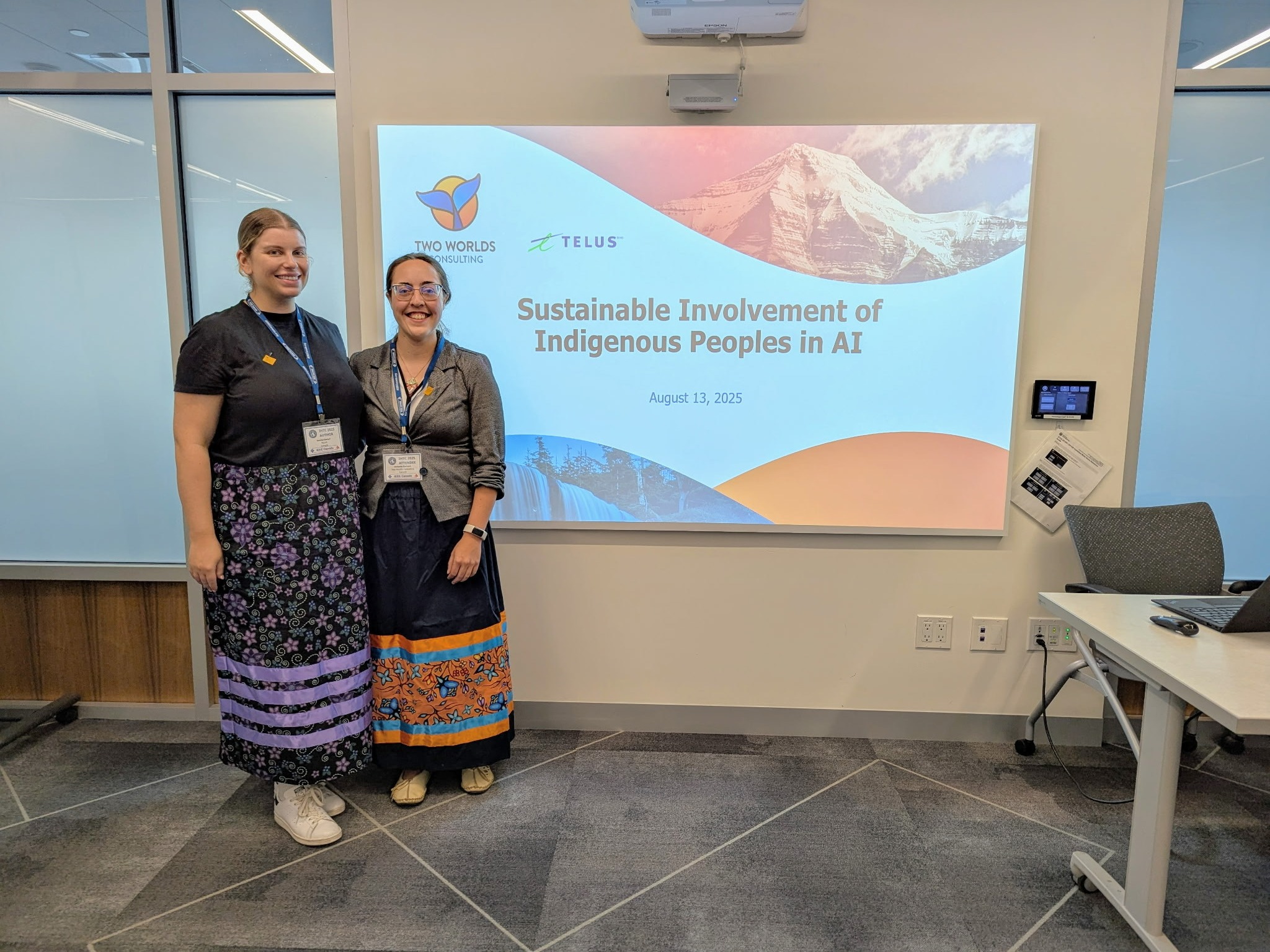
Connecting Canada
How vulnerable youth are making real connections in a digital world
May 25, 2019
Thanks to the support of a unique national initiative, thousands of young Canadians are dialling up success on one of the world’s fastest and most reliable networks as they make the often difficult journey aging out of the child care system.
Learn more about how Mobility for Good™ helps youth aging out of foster care gain their independence while staying connected to the people, resources and opportunities they need to succeed.
The day Brittany turned 18, her whole world changed.
When most kids are celebrating a major milestone in their lives, Brittany’s 18th birthday was marked by the loss of many of the financial and emotional resources that had helped to sustain her throughout an otherwise unsettled childhood.
She was seven when she and her younger brother were taken into the Ontario foster care system. The siblings moved through several short-term foster homes before they were split up and sent to live with different families.
At 18, Brittany began her transition out of the foster system. That meant finding her own place to live, buying groceries, and paying for heating and electricity -- all on a tight monthly allowance and zero credit score. With barely enough money to cover rent in her Brantford community, she took the bus to the local food bank and struggled home with the donated food and toiletries she needed to get her through the toughest of times. Worse, unable to afford a mobile phone or internet connection, she felt isolated from a vital network of supporters and resource providers who’d helped her to cope throughout her teenage years.
“It was brutal,” she recalls.
Sadly, it’s an experience shared by thousands of young Canadians.
Every year about 2,300 youth age out of Canada’s child welfare system. Many, like Brittany, are not prepared to transition to independent life and don’t have the support of permanent families to help them get on their feet. Without the proper resources available, many leaving the system face increased risks of poverty, homelessness, substance abuse, relationship breakdowns, anxiety, depression and suicide.
“When you become an adult, stability and structure is something you need, but how do you have that when you were never given stability or structure growing up,” she says. “You are basically all on your own.”
Now 23, Brittany can still recall with vivid clarity the fear and alienation that threatened to envelop her -- just as she was starting to build her own life. Although she’s come a long way, it’s still an uphill battle to afford the basic amenities that many Canadians take for granted. So when she learned of a new program that equips young adults leaving the foster care system with a free smartphone and a free two-year wireless plan on one of the world's fastest and most reliable networks, she jumped at it.
Called
TELUS Mobility for Good
, the ground-breaking social program gives participants unlimited talk and text nationwide, as well as 3GB of data per month. And though it’s free of charge, participants will still receive bills in their name, giving them the chance to build a credit score.To date, nearly 1,900 youth, all of whom have been through the Canadian child care system, have joined Brittany in accessing the program since it was initially piloted by TELUS, in collaboration with government partners, in British Columbia in 2017. It has now grown beyond B.C. to become a nation-wide program available in Ontario, Quebec, Alberta, Manitoba and New Brunswick.
Valerie McMurtry, president and CEO, Children’s Aid Foundation of Canada, the organization that partners with TELUS to offer the program in Ontario and other provinces, called Mobility for Good “a life-changing and potentially life-saving connection” for the thousands of young Canadians who are transitioning out of care. For these kids, a smartphone is “a lifeline to helping them achieve independence,” she said.
Brittany is among Ontario’s program recipients and she is grateful to have the cushion of support as she moves to get her life on track. It’s a big change from when she first tried to get a cell phone from a low-cost carrier a few years ago. With no credit history and no family to back her up financially, she was denied because she couldn’t afford the $500 deposit. It was a big blow, impeding almost every aspect of her life, from securing an apartment to job hunting to scheduling schooling.
Government policies have made the digital divide in Canada worse, leaving some communities without optimal internet. Get informed.
“You can’t exist without a cell phone. Without it, you lose quality of life. But if you choose to have a phone, you lose something else, like food,” she says of the difficult choices she was previously forced to make.
These days, the future is bright. Brittany is a new mom and a student at Wilfrid Laurier University, with plans to become a social worker. She is also back in touch with her younger brother and serves as a youth ambassador for Children’s Aid Foundation.
Still, she worries for others out there who may feel cut off from the world.
It’s why, when she talks of Mobility for Good, it brings tears to her eyes.
“It’s a very practical program,” she says. “But it is actually changing people’s lives.”
Explore similar articles

Help support connecting communities
Better government policies are needed to ensure better connectivity for Canadians.
Get informed

